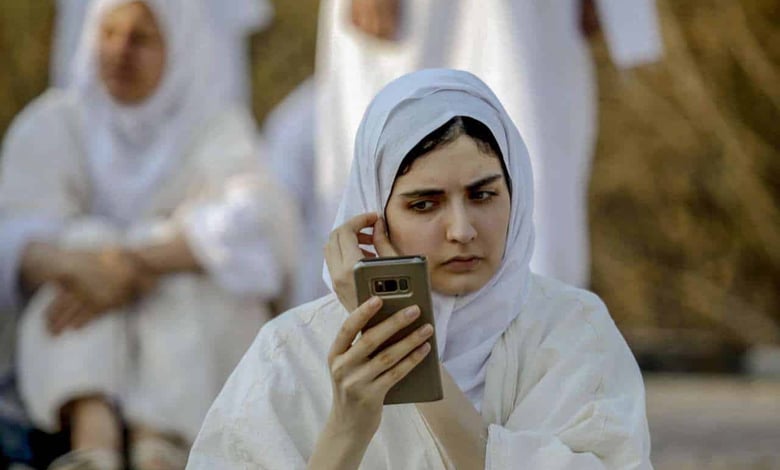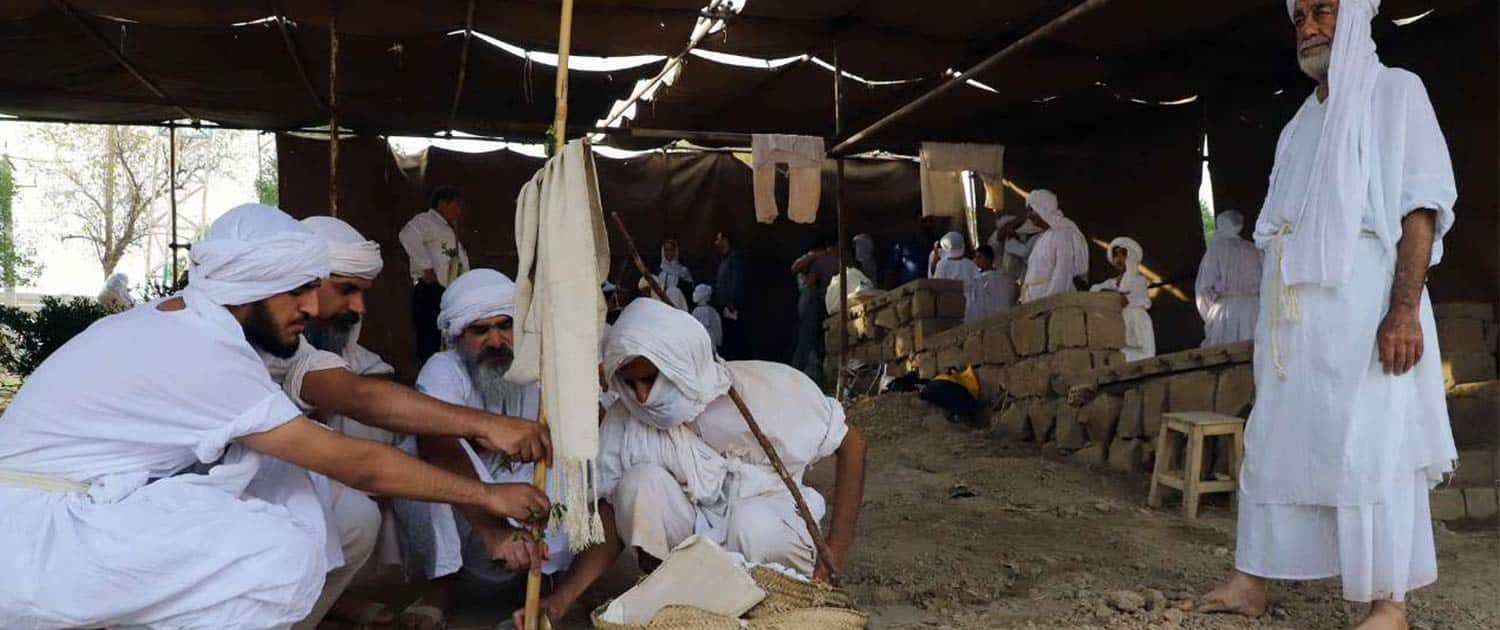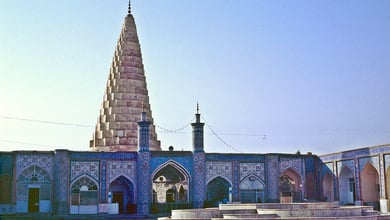Dokhrani Ceremony of Mandaeans: Baptizing and Naming Children
Baptizing and naming Children in Mandaeism religious.

A religious ritual in one of the most ancient religions of the world; Mandaeism practiced in Khuzestan, Iran.
Although the main religion in Iran is Islam, other religions are practiced among some Iranian tribes and groups, too. One of these less-known religions is Mandaeism, which was originally practiced in some parts of southern Iraq as well as Khuzestan province in Iran, near the lower Karun river, Euphrates, Tigris and other rivers surrounding Shatt-al-Arab.

Mandaeism is believed to be a gnostic religion, meaning that it belongs to the category of different ancient religious ideas and systems which are rooted in Jewish Christian society. Their theology is centered within a dualistic philosophy of life (light and darkness, soul and body).

Some say this religion dates back to the first three centuries AD, although some scholars claim that this religion is much older and originates in the pre-Christian era. They are sometimes referred to as “Christians of Saint John”.

The number of people who practice this ancient religion is estimated to be around 60,000 to 70,000 throughout the world. It is still alive mainly In Iraq, however many of the believers were forced to flee from their country after the Iraq war in 2003. It is also alive in the southern province of Iran, Khuzestan and around 10,000 of them live near Sydney’s western suburbs in Australia.

The name Mandaeism can mean “Knowledge of Life” and although it has remained separate and private throughout history, its unique characteristics and rituals are truly notable. The Mandaean community -also known as Sabians in Islam- venerate John the Baptist above all. They are described as People of the Book along with Jews and Christians in the Quran and one of their main characteristics is the frequent use of running water as a purifying force.

Mandaeans, unlike Christians, may be baptized hundreds of times over the course of their life and they mainly reside near the river to use the water for baptisms and ritual purifications.

The community believes that baptism is an opportunity to refresh and purify one’s life and soul and the river is the perfect place to do that, as it is where life is always flowing.
They also normally dress in white, because it represents faith, cleansing, and purification. They spend the next 36 hours- the same amount of time it took for the “spiritual soul” to create the world and the first man, Adam- in their homes after the ceremony, so they can continue in his path. They also believe in fasting, not only in terms of food and water but also in terms of not lying, not seeing the wrongdoing and not walking into the wrong path.

Each year in 24 July, the Mandaean community celebrates one of their most important feasts, known as “The feast of Angles.” It coincides with celebrating the birth of John the Baptist, during which they baptize their children and name them. In this ceremony, they purify the soul and body of their small boys and girls through several rituals. Performed in Ahvaz, Khuzestan, the ceremony and its special traditions, resembles an ancient scene which transports us back into history!







Photos@irna.ir




